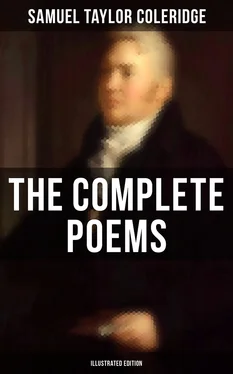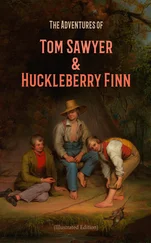Table of Contents
1814-1818
Lynx amid moles! had I stood by thy bed,
Be of good cheer, meek soul! I would have said:
I see a hope spring from that humble fear.
S. T. C.
SCIENCE AND PHILOSOPHY
The first man of science was he who looked into a thing, not to learn whether it could furnish him with food, or shelter, or weapons, or tools, or ornaments, or playwiths , but who sought to know it for the gratification of knowing ; while he that first sought to know in order to be was the first philosopher. I have read of two rivers passing through the same lake, yet all the way preserving their streams visibly distinct—if I mistake not, the Rhone and the Adar, through the Lake of Geneva. In a far finer distinction, yet in a subtler union, such, for the contemplative mind, are the streams of knowing and being. The lake is formed by the two streams in man and nature as it exists in and for man; and up this lake the philosopher sails on the junction-line of the constituent streams, still pushing upward and sounding as he goes, towards the common fountain-head of both, the mysterious source whose being is knowledge, whose knowledge is being—the adorable I am in that I am.
PETRARCH'S EPISTLES
I have culled the following extracts from the First Epistle of the First Book of Petrarch's Epistle, that "Barbato Salmonensi." [Basil, 1554, i. 76.]
Vultûs, heu, blanda severi
Majestas, placidæque decus pondusque senectæ!
Non omnia terræ
Obruta! vivit amor, vivit dolor! Ora negatum
Dulcia conspicere; at flere et meminisse relictum est.
Jamque observatio vitæ
Multa dedit—lugere nihil, ferre omnia; jamque
Paulatim lacrymas rerum experientia tersit.
[Heu! et spem quoque tersit]
Pectore nunc gelido calidos miseremur amantes,
Jamque arsisse pudet. Veteres tranquilla tumultus
Mens horret, relegensque alium putat esse locutum.
But, indeed, the whole of this letter deserves to be read and translated. Had Petrarch lived a century later, and, retaining all his substantiality of head and heart, added to it the elegancies and manly politure of Fracastorius, Flaminius, Vida and their corrivals, this letter would have been a classical gem. To a translator of genius, and who possessed the English language as unembarrassed property, the defects of style in the original would present no obstacle; nay, rather an honourable motive in the well-grounded hope of rendering the version a finer poem than the original.
[Twelve lines of Petrarch's Ep. Barbato Salmonensi are quoted in the Biog. Liter. at the end of chapter x.; and a portion of the same poem was prefixed as a motto to "Love Poems" in the Sibylline Leaves , 1817, and the editions of P. W. , 1828-9. Coleridge's Works , Harper & Brother, 1853, iii. 314. See, too, P. W. , 1893, Editor's Note , pp. 614, 634.]
CORRUPTIO OPTIMI PESSIMA
A fine writer of bad principles or a fine poem on a hateful subject, such as the "Alexis" of Virgil or the "Bathyllus" of Anacreon, I compare to the flowers and leaves of the Stramonium. The flowers are remarkable sweet, but such is the fetid odour of the leaves that you start back from the one through disgust at the other.
A BLISS TO BE ALIVE
Zephyrs that captive roam among these boughs,
Strive ye in vain to thread the leafy maze?
Or have ye lim'd your wings with honey-dew?
Unfelt ye murmur restless o'er my head
And rock the feeding drone or bustling bees
That blend their eager, earnest, happy hum!
WHAT MAN HAS MADE OF MAN
Gravior terras infestat Echidna,
Cur sua vipereæ jaculantur toxica linguæ
Atque homini sit homo serpens. O prodiga culpæ
Germina, naturæque uteri fatalia monstra!
Queis nimis innocuo volupe est in sanguine rictus
Tingere, fraternasque fibras cognataque per se
Viscera, et arrosæ deglubere funera famæ.
Quæ morum ista lues!
25th Feb. 1819 Five years since the preceding lines were written on this leaf!! Ah! how yet more intrusively has the hornet scandal since then scared away the bee of poetic thought and silenced its "eager, earnest, happy hum"!
SAVE ME FROM MY FRIENDS
The sore evil now so general, alas! only not universal, of supporting our religion, just as a keen party-man would support his party in Parliament. All must be defended which can give a momentary advantage over any one opponent, no matter how naked it lays the cause open to another, perhaps, more formidable opponent—no matter how incompatible the two assumptions may be. We rejoice, not because our religion is the truth, but because the truth appears to be our religion. Talk with any dignified orthodoxist in the sober way of farther preferment and he will concrete all the grounds of Socinianism, talk Paley and the Resurrection as a proof and as the only proper proof of our immortality, will give to external evidence and miracles the same self-grounded force, the same fundamentality. Even so the old Puritans felt towards the Papists. Because so much was wrong, everything was wrong, and by denying all reverence to the fathers and to the constant tradition of the Catholic Churches, they undermined the wall of the city in order that it might fall on the heads of the Romanists—thoughtless that by this very act they made a Breach for the Arian and Socinian to enter.
DRIP DRIP DRIP DRIP
The ear-deceiving imitation of a steady soaking rain, while the sky is in full uncurtainment of sprinkled stars and milky stream and dark blue interspace. The rain had held up for two hours or more, but so deep was the silence of the night that the drip from the leaves of the garden trees copied a steady shower.
REMEDIUM AMORIS
So intense are my affections, and so despotically am I governed by them (not indeed so much as I once was, but still far, far too much) that I should be the most wretched of men if my love outlived my esteem. But this, thank Heaven! is the antidote. The bitterer the tear of anguish at the clear detection of misapplied attachment, the calmer I am afterwards. It is a funeral tear for an object no more.
THE CONCLUSION OF THE WHOLE MATTER
February 23, 1816.
I thought I expressed my thoughts well when I said, "There is no superstition but what has a religion as its base [or radical], and religion is only reason, seen perspectively by a finite intellect."
THE POWER OF WORDS
It is a common remark, in medical books for instance, that there are certain niceties which words, from their always abstract and so far general nature, cannot convey. Now this I am disposed to deny, that is, in any comparative sense. In my opinion there is nothing which, being equally known as any other thing, may not be conveyed by words with equal clearness. But the question of the source of the remark is, to whom? If I say that in jaundice the skin looks yellow, my words have no meaning for a man who has no sense of colours. Words are but remembrances, though remembrance may be so excited, as by the a priori powers of the mind to produce a tertium aliquid . The utmost, therefore that should be said is that every additament of perception requires a new word, which (like all other words) will be intelligible to all who have seen the subject recalled by it, and who have learnt that such a word or phrase was appropriated to it; and this may be attained either by a new word, as platinum , titanium , osmium , etc., for the new metals, or an epithet peculiarising the application of an old word. For instance, no one can have attended to the brightness of the eyes in a healthy person in high spirits and particularly delighted by some occurrence, and that of the eye of a person deranged or predisposed to derangement, without observing the difference; and, in this case, the phrase "a maniacal glitter of the eye" conveys as clear a notion as that jaundice is marked by yellow. There is, doubtless, a difference, but no other than that of the commencement of particular knowledge by the application of universal knowledge (that is to all who have the senses and common faculties of men), and the next step of knowledge when it particularises itself. But the defect is not in words, but in the imperfect knowledge of those to whom they are addressed. Then proof is obvious. Desire a physician or metaphysician, or a lawyer to mention the most perspicuous book in their several knowledges. Then bid them read that book to a sensible carpenter or shoemaker, and a great part will be as unintelligible as a technical treatise on carpentering to the lawyer or physician, who had not been brought up in a carpenter's shop or looked at his tools.
Читать дальше












